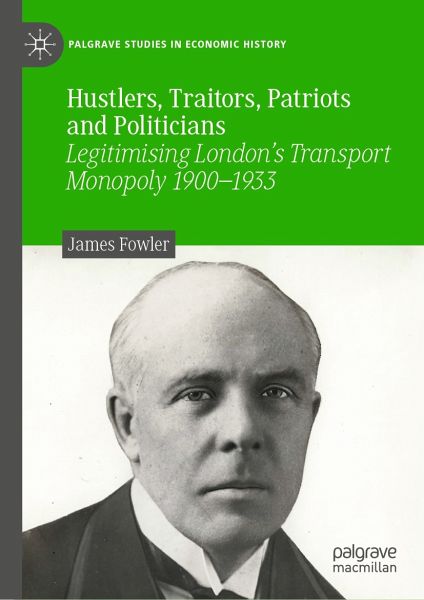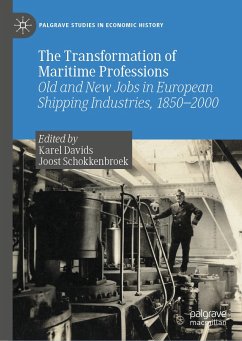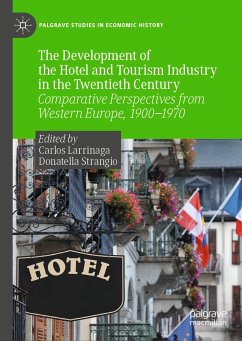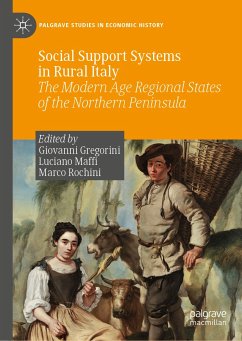
Hustlers, Traitors, Patriots and Politicians (eBook, PDF)
Legitimising London's Transport Monopoly 1900-1933
Versandkostenfrei!
Sofort per Download lieferbar
104,95 €
inkl. MwSt.
Weitere Ausgaben:

PAYBACK Punkte
52 °P sammeln!
This book offers a novel explanation of the transformation of London's transport from a free market to a public corporation rooted in social and political legitimacy rather than economic rationality. To become a single corporation London Transport first had to gain a 'social licence' to operate, and this book explains how and why. It considers how a revolution in data gathering during this period helped to justify the transition to a central, unified provider, while also investigating how reputational damage to key figures in the transport industry jeopardized the political and social legitima...
This book offers a novel explanation of the transformation of London's transport from a free market to a public corporation rooted in social and political legitimacy rather than economic rationality. To become a single corporation London Transport first had to gain a 'social licence' to operate, and this book explains how and why. It considers how a revolution in data gathering during this period helped to justify the transition to a central, unified provider, while also investigating how reputational damage to key figures in the transport industry jeopardized the political and social legitimacy needed to manage public corporation on a large scale.
The book combines archival research with academic insights from theories of legitimacy, statistical accounting and scientific management to explore how the employment of statistical information combined with skilful media repositioning allowed a new generation of figureheads in the transport business to emerge as honest, professional, and patriotic, making them suitable business leaders of a transport monopoly in London after 1933. This account of events combines the concepts of trust in numbers and trust in character to produce a wide-ranging, qualitative historical account of the creation a major public monopoly. It will be of interest to students and scholars from a wide range of disciplines, including business and management history, transport policy, management and organization studies, public administration and public sector studies.
The book combines archival research with academic insights from theories of legitimacy, statistical accounting and scientific management to explore how the employment of statistical information combined with skilful media repositioning allowed a new generation of figureheads in the transport business to emerge as honest, professional, and patriotic, making them suitable business leaders of a transport monopoly in London after 1933. This account of events combines the concepts of trust in numbers and trust in character to produce a wide-ranging, qualitative historical account of the creation a major public monopoly. It will be of interest to students and scholars from a wide range of disciplines, including business and management history, transport policy, management and organization studies, public administration and public sector studies.
Dieser Download kann aus rechtlichen Gründen nur mit Rechnungsadresse in A, B, BG, CY, CZ, D, DK, EW, E, FIN, F, GR, HR, H, IRL, I, LT, L, LR, M, NL, PL, P, R, S, SLO, SK ausgeliefert werden.












